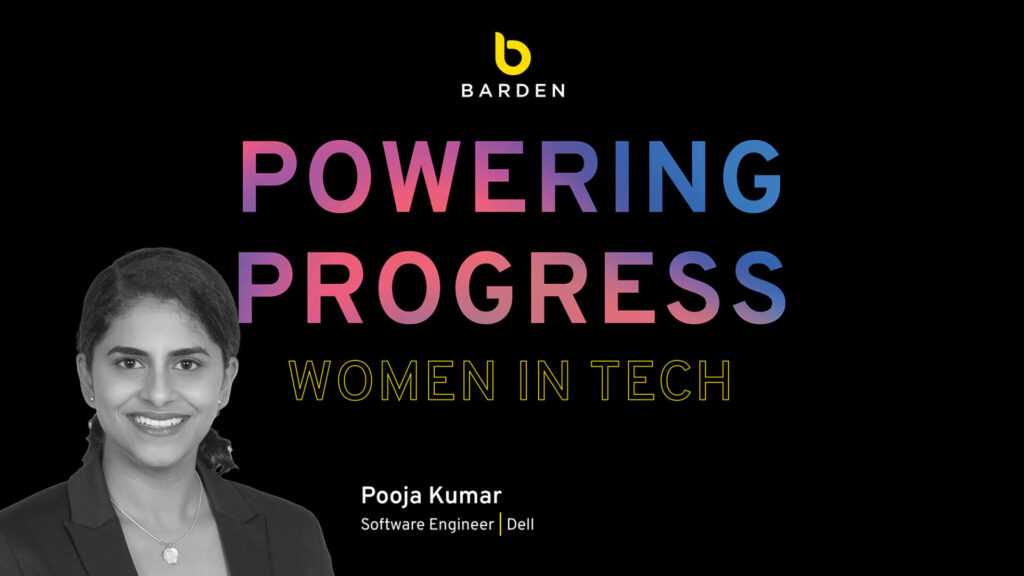What sparked your interest in computer science, and what led you to specialise in software engineering?
Initially, I wasn’t sure about my career path. In college, I considered aeronautical or computer science engineering but eventually chose computer science, where I developed a passion for software development. I enjoyed creating solutions and seeing tangible results, like automating lights and fans in Internet of Things (IoT) projects. However, I realised that I preferred the simplicity and creativity of software development over hardware setups. Writing code and watching it work was exciting and rewarding.
Coding isn’t just about writing lines of code; it’s about understanding logic and techniques to solve problems efficiently. My teachers made algorithms engaging by using visual explanations, showing how tasks like sorting numbers could be completed in milliseconds. This blend of logic and my love for mathematics deepened my interest in programming.
While I enjoyed my early roles in computer science, data analytics fascinated me, leading me to pursue a master’s degree. During the challenging COVID-19 job market, I secured a software development role I genuinely love. Coding, making changes, and seeing the results inspire and motivate me daily.
Have you noticed any gender imbalance during your academic or professional journey?
In my academic journey, I didn’t start coding until 11th grade, as my state syllabus only covered basic computer usage, unlike CBSE or ICSE syllabuses, where students started coding earlier. This made me feel behind when I began coding, even with simple skills like typing.
In 11th and 12th grades, I noticed subtle discrimination in the lab. Some classmates, especially boys, were surprised by my abilities. Despite being academically strong, I was slower in the lab and often underestimated. Out of interest, I took extra IoT classes in the evenings, where I observed that my suggestions were often not considered equally in group projects. It sometimes felt like men assumed women couldn’t match their level of work, even when we contributed equally.
Thankfully, my professional experience is much better. My current team has an equal mix of men and women, and my male colleagues value my input and seek clarification when needed. It’s a refreshing change from earlier experiences, where I often felt overlooked or underestimated.
What can be done at educational and organisational levels to encourage more women to enter software development?
I participated in the STEM Aspire programme in Ireland last year. It aims to encourage women in technology. I mentored a second-year student who had many questions about her career path -whether to focus on hardware or software or pursue a master’s degree. She felt unsure whom to approach for guidance.
Through the programme, she had the opportunity to discuss her goals with someone who provided a different perspective and valuable guidance. Initially, she wasn’t even sure about applying, but I encouraged her to give it a try. It’s about taking small steps – apply first, then decide.

Decisions like whether to pursue computer science, continue studying, or start working felt overwhelming. This lack of information and support persists for many women, though I can’t say if men face the same challenges.
Do you think that mentorship, like in STEM Aspire, is pivotal to helping women progress in tech?
Absolutely. I’d suggest companies focus on mentorship programmes and initiatives like STEM Aspire. Having female representatives and engaging directly with students can show women the diverse opportunities in tech. It’s empowering to see someone like you succeed in these fields. At work, having a mentor early in my career helped me grow. Initially, I was hesitant, but within a year, I became a mentor myself. The difference is clear – mentorship provides direction and builds confidence.
What advice would you give young women interested in pursuing a career in technology?
If you’re interested in logic and mathematics, technology is the best industry to work in, as you need to think logically and use your skills effectively. It’s not about writing essays or describing places or people; it’s about problem-solving. Logical thinking is entirely different from just thinking.

That constant learning excites me. If you enjoy learning and growing every day, this field is ideal.
The most important advice I’d give is: if you’re interested in technology, go for it! It’s a dynamic and rewarding career path.
Have you encountered women in senior positions, whether in your organisation or elsewhere, who have inspired you, and how have they influenced your career goals?
Yes, definitely. My previous manager was a woman with a similar background to mine. She’s incredibly inspiring. Whenever I spoke with her, she shared her experiences and guided me without directly giving answers. Instead, she pointed me to where I could find the answers myself, which really helped me grow.
When I joined, I didn’t know exactly what I wanted to achieve, but seeing her gave me a vision. I thought, “Maybe in 10 years, I could be like her.” She encouraged me, and her leadership style motivated me.
I also have a scrum master who inspires me in a completely different way. At first, I found her quite demanding, but over time, I’ve come to admire her. She manages teams across three different time zones, coordinates with leaders in each region, and ensures everything runs smoothly.
What’s even more inspiring is that she’s pregnant, yet she manages her workload with incredible energy and efficiency. Her ability to balance it all while being so persistent and dedicated is amazing.



 Jump Back
Jump Back

